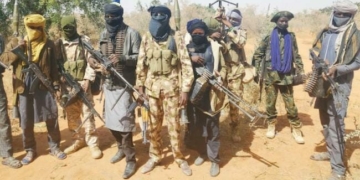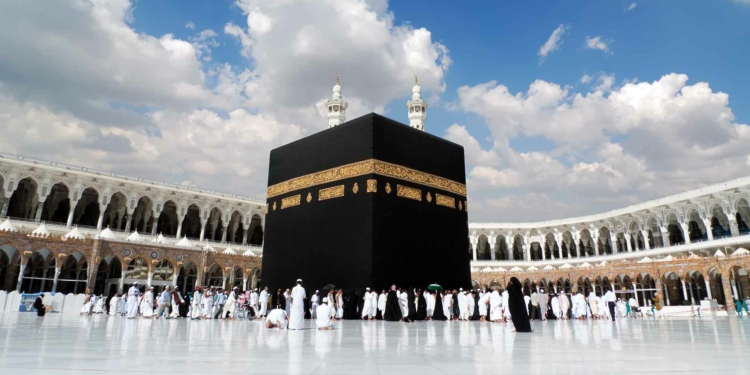- Arewa New Agenda (ANA) launches an advocacy campaign, endorsed by NAHCON, to improve accessibility and address cost-related challenges for Hajj 2024
- The campaign engages religious leaders, stakeholders, and state pilgrims’ boards to tackle issues such as accommodation, feeding schemes, and airfares
Senator Ahmad Abubakar MoAllahyidi, spearheading the Arewa New Agenda (ANA), has launched a comprehensive advocacy campaign to improve accessibility to Hajj 2024 for Nigerian Muslims. The initiative focuses on addressing critical issues related to the cost and accessibility of the sacred pilgrimage, advocating for measures to alleviate financial burdens faced by intending pilgrims.
ANA’s concerted effort received full endorsement and support from the leadership of the National Hajj Commission of Nigeria (NAHCON), underscoring the importance of the campaign in easing the challenges surrounding Hajj 2024.
The campaign unfolded through strategic engagements across key regions—North West, North East, North Central, and FCT—bringing together religious leaders, stakeholders, and state pilgrims’ boards to address pressing concerns ahead of the looming December 31st payment deadline for Hajj 2024.
ANA’s advocacy covered various challenges impacting the affordability of Hajj, including accommodation near Haram, feeding schemes, royalties, airfares, and service charges, all contributing to the overall high cost incurred by intending pilgrims.
Stakeholders voiced concerns during the engagements, highlighting issues such as fraudulent activities targeting pilgrims, delayed information dissemination, and inadequate awareness within rural communities regarding new regulations and payment deadlines for the 2024 Hajj.
Regional observations indicated promising trends in some states meeting their Hajj quotas, while others faced challenges due to pending court decisions and delayed commitments. The need for deadline extensions and subsidies emerged as key recommendations to enhance Hajj accessibility.
The North Central region particularly emphasized a lack of comprehensive information and suggested intensive educational campaigns to bridge the awareness gap among intending pilgrims and rural communities.
Stakeholders advocated for intensified enlightenment drives, closer collaboration with financial institutions to alleviate payment hurdles, and a call for governments to subsidize Hajj fares. Addressing concerns about fraud, improved management, and early savings schemes were also highlighted.
Encouragingly, government officials in various states, including Kano, Kebbi, FCT, Zamfara, Kwara, and Nasarawa, expressed confidence in their governments’ interventions to ensure a successful Hajj 2024. They affirmed their commitment to addressing affordability challenges, reflecting a positive step towards making Hajj more accessible for Nigerian Muslims.
Senator MoAllahyidi conveyed gratitude for the support extended by the National Hajj Commission and various state pilgrims’ boards, acknowledging their collaborative efforts to advance the cause of making Hajj 2024 more accessible for Nigerian Muslims.










Discussion about this post